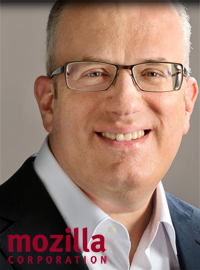| From the NAACP to Mozilla: Anonymity and First Amendment Freedom |
 |
|
By Timothy H. Lee
Thursday, April 10 2014 |
“Petitioner has made an uncontroverted showing that on past occasions revelation of the identity of its rank-and-file members has exposed these members to economic reprisal, loss of employment, threat of physical coercion, and other manifestations of public hostility. Under these circumstances, we think it apparent that compelled disclosure of petitioner's Alabama membership is likely to affect adversely the ability of petitioner and its members to pursue their collective effort to foster beliefs which they admittedly have the right to advocate, in that it may induce members to withdraw from the Association and dissuade others from joining it because of fear of exposure of their beliefs shown through their associations and of the consequences of this exposure.” -Justice John Marshall Harlan II, NAACP v. Alabama (1958) In 1958, the state of Alabama demanded that the non-profit organization National Association for the Advancement of Colored People (NAACP) disclose the names and home addresses of its supporters. It was a transparent tactic to menace and discourage NAACP supporters from freely participating in its cause. A unanimous U.S. Supreme Court, however, was having none of it. Instead, the Court correctly recognized that compelled disclosure of political associations would “abridge the rights of its rank-and-file members to engage in lawful association in support of their common beliefs”: “This Court has recognized the vital relationship between freedom to associate and privacy in one's associations. Compelled disclosure of membership in an organization engaged in advocacy of particular beliefs is of the same order. Inviolability of privacy in group association may in many circumstances be indispensable to preservation of freedom of association, particularly where a group espouses dissident beliefs.” Importantly, the Court noted that logic applied whether persecution came from government officials or private parties exploiting the forced disclosure: “It is not sufficient to answer, as the State does here, that whatever repressive effect compulsory disclosure of names of petitioner's members may have upon participation by Alabama citizens in petitioner's activities follows not from state action but from private community pressures. The crucial factor is the interplay of governmental and private action, for it is only after the initial exertion of state power represented by the production order that private action takes hold.” It is also notable that the Court quashed the “corporations are not people” argument too often repeated today: “If petitioner's rank-and-file members are constitutionally entitled to withhold their connection with the Association despite the production order, it is manifest that this right is properly assertable by the Association. To require that it be claimed by the members themselves would result in nullification of the right at the very moment of its assertion. Petitioner is the appropriate party to assert these rights, because it and its members are in every practical sense identical. The Association, which provides in its constitution that ‘[a]ny person who is in accordance with [its] principles and policies . . .’ may become a member, is but the medium through which its individual members seek to make more effective the expression of their own views.” What was true with the NAACP in 1958 is just as true today. Just ask Brendan Eich. In 1998, Mr. Eich co-founded Mozilla Corporation. Today, he’s out of a job as Mozilla’s CEO. All due to public hostility toward a belief he expressed six years ago. Back in 2008, Mr. Eich made a donation in support of Proposition 8, with his donation allegedly disclosed by the IRS to a left-wing activist organization. The measure ultimately prevailed with a 52% majority, in ultra-liberal California, and during an election year that swept Barack Obama into the White House and Democrats into supermajority control of both the House and Senate. Today, however, Prop. 8 has become a cudgel to bludgeon people like Mr. Eich even in their private lives. Whatever one’s viewpoint in the gay marriage debate, this is a fearsome development. Even Andrew Sullivan, one of the earliest proponents of gay marriage, categorically rejected it. Moreover, since Obama himself espoused the same viewpoint in 2008, should he be similarly driven from office? Is Hillary Clinton ineligible for the White House in 2016, since she expressed the same belief? Not in any culture that values free speech and free association, obviously. But it once again highlights how anonymity in political participation is critical to preserve, not reduce or eliminate. Given the way in which people today are not only demonized but physically stalked via the Internet or other means simply for engaging in the political process, it's important that citizens be free to participate in the civic process without fear of retaliation. Moreover, even apart from the retaliation issue, it's nobody else's legitimate concern how free citizens spend their own money. The right to allocate your income as you wish, particularly in terms of free speech and civic participation, far outweighs the minimal or even non-existent "right" for random members of the public to snoop into how you choose to spend the money you've earned. It's ultimately the substance of the message, not the source, that persuades or dissuades. After all, the Ford Edsel couldn't sell even with all the marketing power imaginable. This isn't just a conservative vs. liberal matter. Whether it involves the NAACP in the 1950s or Brendan Eich today, the silencing effect is the same. The First Amendment right to speak or associate without fear of retaliation demands more confidentiality, not less. |
Related Articles : |
























